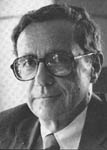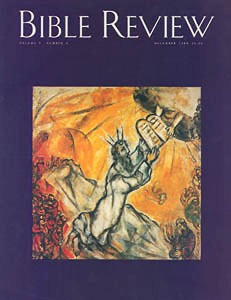
Last fall, a friend and I taught a course called “Ideas and the Modern World” to 16 honors students at Indiana University in Bloomington, Indiana. The course is very similar to the “great books” courses common in the 1940s and 1950s, most of which were dropped—as William Bennett, Allan Bloom and others have pointed outa—as a result of the 1960s student protests against authority in general, and specifically against what was perceived as a straitjacket curriculum based on a narrowly defined tradition. We structured our course around a series of questions about the human condition, including, for example: Do we have free will? How do we explain suffering? Are there limits to human knowledge? How do we decide the right thing to do? What role does a divine being play in our lives? How much are we capable of achieving? Are we basically good or evil? How do we determine, individually and collectively, our heroes? Do we perform good deeds to get rewards? What is the end or goal of our lives? In short, these and other questions focused on our image of God and of human nature and on the relationship between the two.
Already a library member? Log in here.
Institution user? Log in with your IP address.

